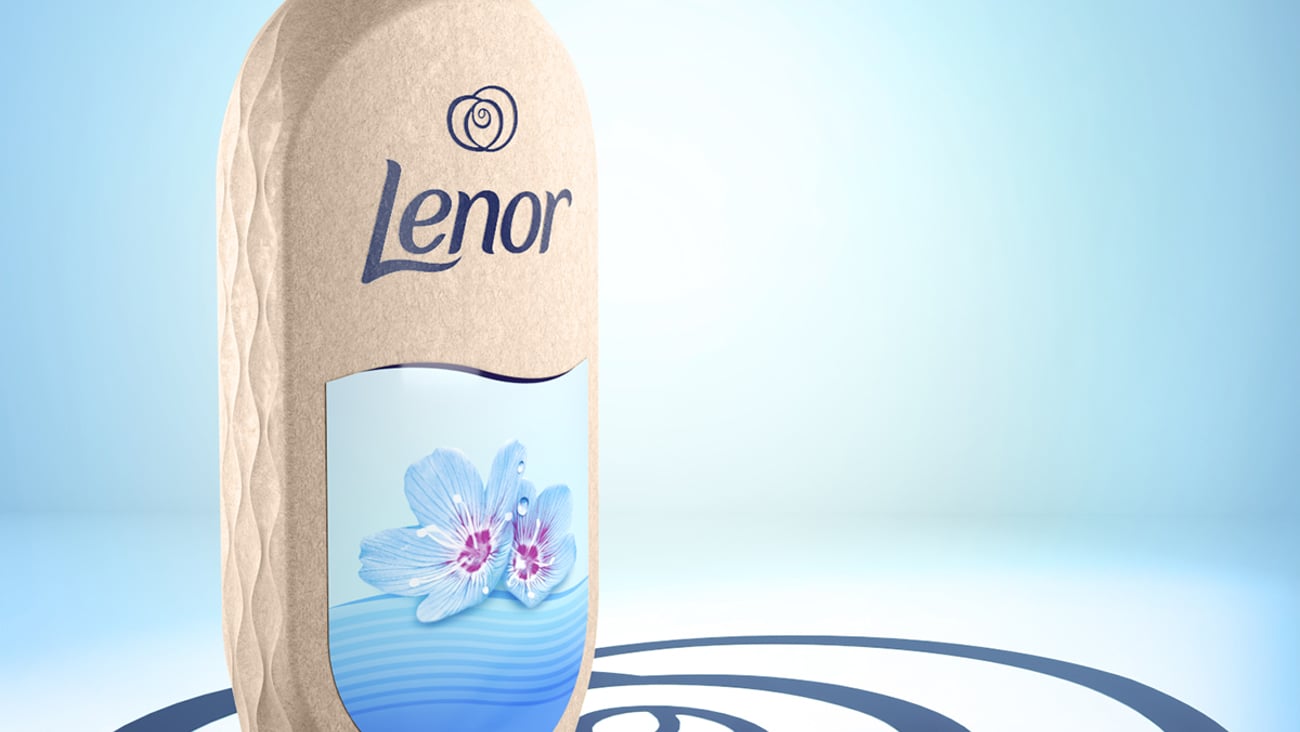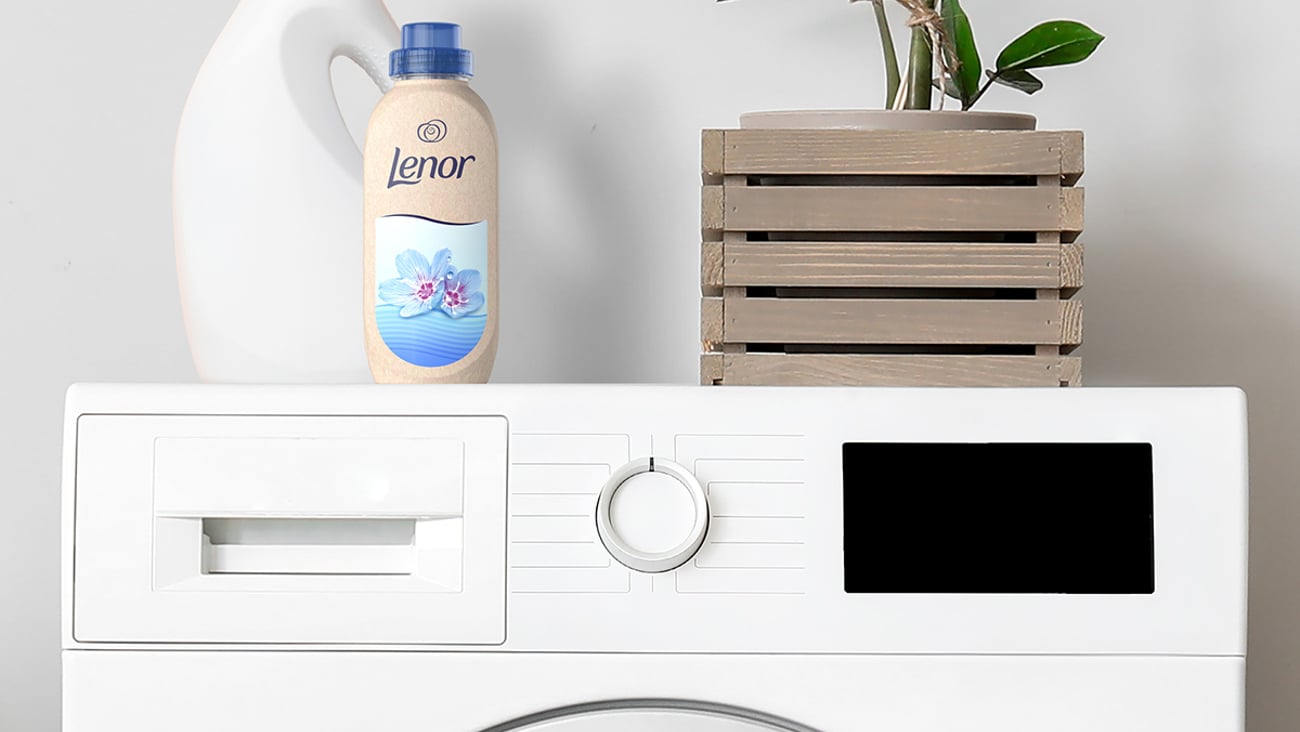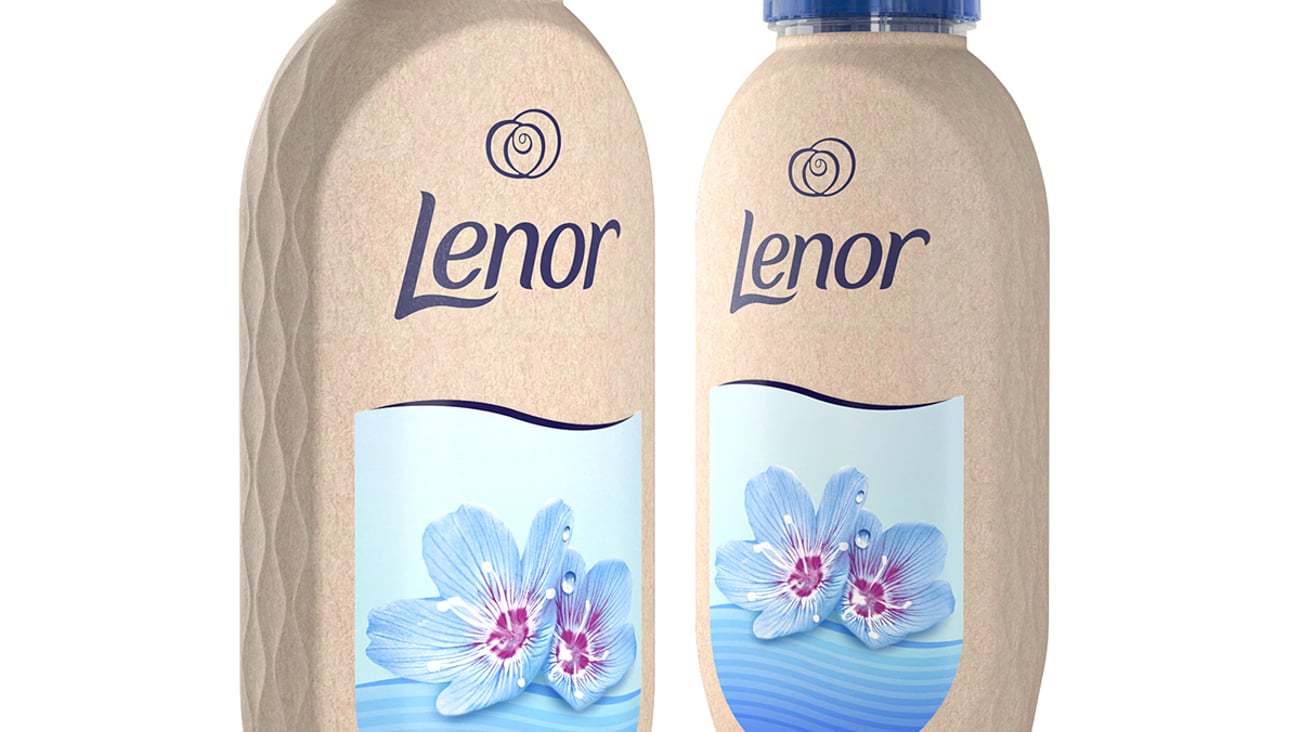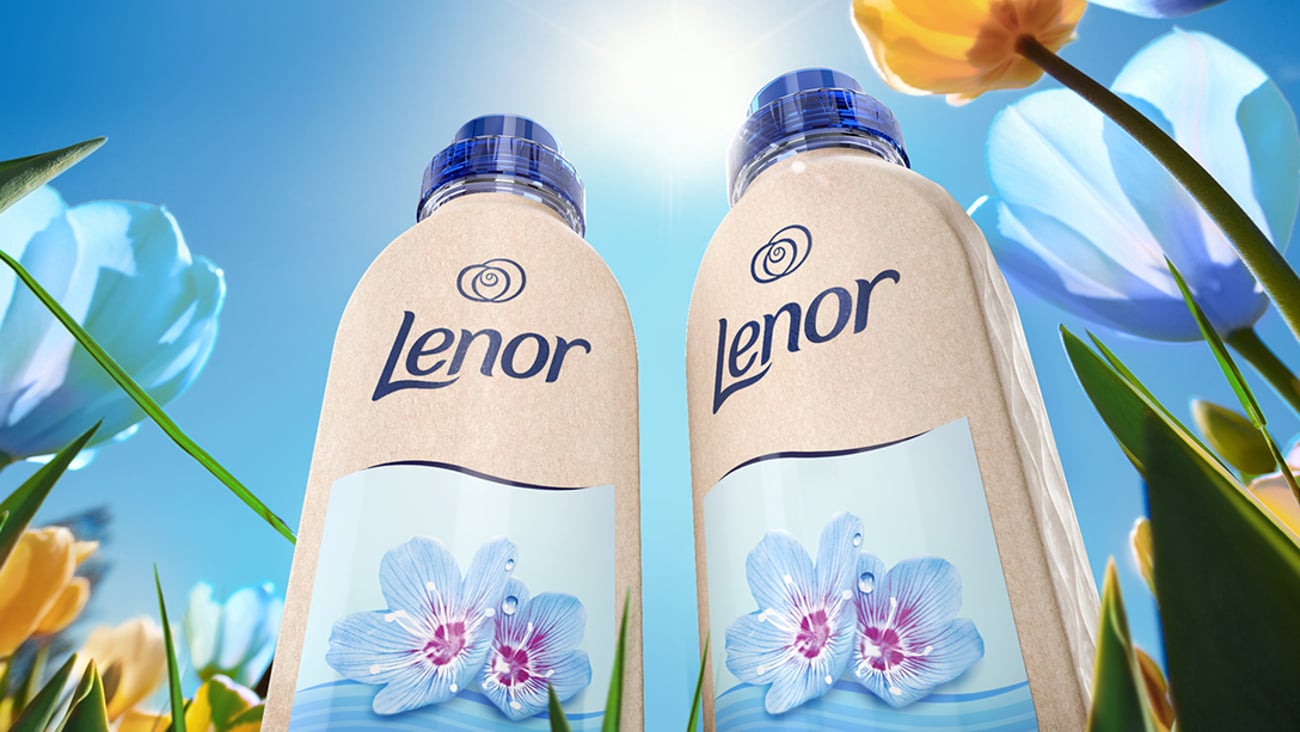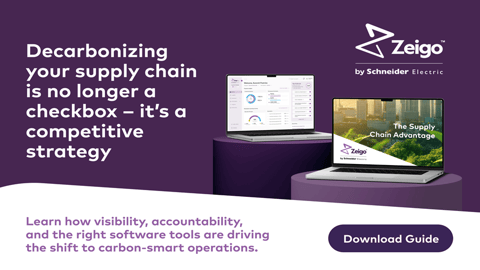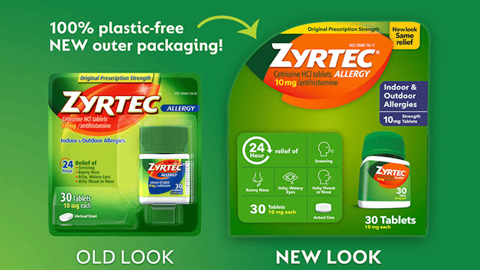P&G Piloting Paper Fabric Care Bottle
Procter & Gamble is piloting a paper bottle for its Lenor fabric care brand, joining the contingent of consumer goods brands eschewing plastic for a new packaging innovation.
The bottle, developed in partnership with paper bottle company Paboco, will be trialed in Western Europe next year. The No. 2 consumer goods company will leverage the learnings as part of a strategy to scale up paper packaging for more wide incorporation throughout its portfolio.
When asked about bringing the technology to other regions, Jerry Porter, SVP of R&D for global fabric and home care sector at P&G, said it’s difficult to say. “The development to change an industry for good is not a small step, and technology development to build efficiency and scale is not a straight line – it can take several years,” he noted to CGT.
[Related: Unilever Joins Diageo & GSK With First Paper-Based Laundry Bottle]
Though P&G is confident they can accelerate progress based on the learnings from the project, Porter couldn’t yet commit to timing even for potential future pilots.
“We will decide step by step what’s next, based on the insights that we will get from Lenor Western European test. The end game is of course to bring 100% biobased and fully recyclable paper bottles to international markets ASAP,” he said.
The recyclable, bio-based technology uses sustainably sourced FSC-certified paper and a thin plastic barrier made from post-consumer recycled PET. It’s also in use by such CGs as The Coca-Cola Company, L’Oreal, Absolut, Carlsberg Group, BillerudKorsnäs and ALPLA, and future versions will integrate the plastic barrier into the paper lining to create a 100% bio-based bottle that can be recyclable in the paper stream.
P&G will use the technology to advance its sustainability agenda, which includes reducing use of virgin plastics by 50% by 2030. Its Fabric Care Europe group has also committed to a 30% absolute plastics reduction by 2025 and to design for 100% recyclability by 2022, which P&G said it’s on track to achieve. Its Home Care group, meanwhile, has committed to use no virgin plastics by 2025.
Porter noted the Lenor brand already incorporates recycled plastic into its packaging, using up to 100% in its European transparent bottles. While this particular test is being used a fabric enhancer vs. a detergent, the challenges are similar: Cleaning products must be stored for long durations, often under a sink or in a wash room, and so manufacturers must ensure the key ingredients remain active.
“They also need to be able to withstand loads of transport, but these are all learnings that can be shared between the Paboco Community members,” he said.
Gittan Schiöld, Paboco interim CEO, confirmed that having P&G as a partner will both add weight to the viability of the technology and unlock opportunities for it to scale.
Indeed, Porter said P&G will share learnings with other CGs. “Some of the challenges around sustainable packaging are so large and complex that no company alone can solve them and that is why collaborative innovation projects like this are so important,” he said. “One of the major benefits of joining the Paboco Paper Bottle Community is the learnings that we can share with one another to really accelerate the development of an innovative technology like paper bottles.”



